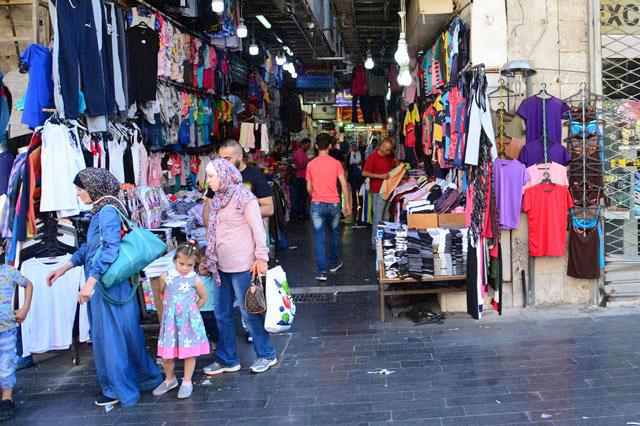You are here
Stationery shop owners counting days for school reopening
By Bahaa Al Deen Al Nawas - Dec 06,2020 - Last updated at Dec 06,2020
AMMAN — With the ongoing pandemic crisis, stationery shop owners say they are cornered into a tight spot, owing rent to landlords, dues to stock importers as well as salaries, with their only hope being the resumption of in-class education in the upcoming semester.
Mervat, owner of a stationery shop, said that, at the beginning of the crisis, sales and revenue dropped by 30 per cent and have reached 60 per cent by now, making them barely able to continue business and maintain their presence in the market.
“There are shops that have shut down in the complex where I work, everybody is suffering to make rent, especially as we do not receive students or families, who out of fear for the virus would rather purchase their own printer and use it at home than send their children to use our services,” she told The Jordan Times over the phone on Sunday.
The first two weeks of the current academic semester had created some movement in the market, Mervat said, but the moment education turned online, business came to a halt.
“Students used to do school projects and come to buy their needs here: cardboards, colours and so on, but this year we have not even purchased this stock, because the demand dropped significantly,” she noted.
The biggest issue, according to Mervat, is the landlords demanding rent “relentlessly”. “At the beginning of the crisis they were relatively lenient and even decreased the amounts a bit to help,” she added,
“But now they have become very demanding and are refusing instalments, requiring the entire amount at once,” she noted.
The semester ends at the beginning of January, bringing a very difficult period during the break between the two semesters, Mervat said, noting that her hope lies in the next one having in-class eductions, to help them at least meet their dues, especially rent.
Shadi Haddadin, another stationery shop owner, said that the situation is “extremely bad”, and the main issue they face is the payment of rent.
“Our financial commitments are what makes it very difficult to continue, especially as the purchasing power nowadays is very bad, and ever since education turned online, demand for our services and products has dropped by around half the usual,” Haddadin said.
“We have to find a way to continue, hoping that sales increase at some point, but only to remain present in the market, because if we shut down, there is no alternative: I would have to sit at home doing nothing,” he said.
“The previous government ensured that education will be face-to-face, which drove owners to buy the market’s stock needs, but the demand from university and school students was low, and then it disappeared when education became remote, so the work dropped but the financial commitments remained the same,” President of the Stationery and Library and Office Equipment Traders and Manufacturers Association Ashraf Kawar told The Jordan Times over the phone.
Kawar said that the government’s programmes did not help stationery and book shop owners much, and that there was a request to regulate the terms between landlords and tenants, but this was not done either.
“We hoped the government would regulate the rent terms, but it was left to take its course, and this does not work in the current conditions. There have to be rules that do not make tenants, nor landlords, shoulder everything,” Kawar said.
He expressed hopes that the government would take a firm decision regarding the next semester, with a guarantee that it will not be changed “abruptly” like it happened this semester.
“There is confusion in the market due to the lack of future vision, which weakens the market even further, so we need to know for sure what is going to happen, in order to act accordingly,” he concluded.
Related Articles
AMMAN — Around 800 clothing and shoe shops have shut down during the past five years due to an increase in rent, the Textile and Readymade C
AMMAN — Amid the economic repercussions following weeks of a nationwide shutdown across most commercial sectors in Jordan, calls for rent re
AMMAN — The clothing, footwear and jewellery sectors urged the government to reduce shipping fees and amend the existing Landlord and Tenant
















